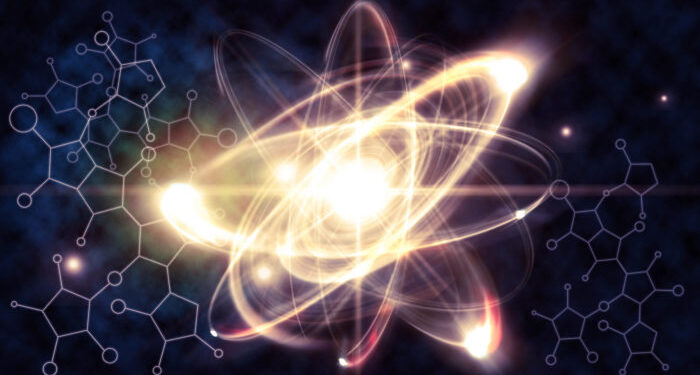In a significant move to bolster bilateral ties and advance clean energy objectives, the United States and Singapore have signed an important civil nuclear cooperation agreement, known as the “123 Agreement.” According to the joint statement, the signing ceremony took place on 31st July 2024 in Singapore, with US Secretary of State Antony J. Blinken and Singapore’s Minister for Foreign Affairs, Dr. Vivian Balakrishnan, formalizing the accord.
The agreement between Singapore and the United States to develop civilian nuclear power could potentially aid in the introduction of nuclear propulsion systems in the maritime industry, drawing significant attention.
Photo courtesy =Azpost,SAFETY4SEA

The National Nuclear Security Administration (NNSA) explains that 123 Agreements, named after Section 123 of the US Atomic Energy Act, are essential for substantial transfers of nuclear material or equipment from the United States. These agreements establish the legal framework for significant nuclear cooperation with other nations, requiring partners to adhere to strict non-proliferation requirements.
As noted in the joint statement, this agreement builds upon a decade of collaboration in nuclear safety and technology, paving the way for deeper cooperation in peaceful nuclear initiatives. It underscores both nations’ commitment to nuclear non-proliferation and adherence to the highest international standards of safety and security.
In his remarks, Secretary Blinken highlighted that a key focus of the partnership will be exploring advanced nuclear energy technologies, including small modular reactors (SMRs), as potential solutions to address climate change while meeting critical energy needs. SMRs are considered more suitable for densely populated areas with limited land, such as Singapore. These reactors offer several advantages over traditional nuclear power plants, including enhanced safety features and significantly smaller emergency planning zones (EPZs). “Current conventional nuclear technologies are not suitable for Singapore. But given advances in civil nuclear technology, we need to stay abreast of breakthroughs in this rapidly evolving field,” said Dr. Balakrishnan during the signing.
According to a recent CNA article, for Singapore, this agreement opens doors to valuable expertise and information, supporting its ongoing evaluation of nuclear energy options as part of its broader decarbonization strategy. The NNSA notes that such agreements facilitate cooperation in areas like technical exchanges, scientific research, and safeguards discussions. The CNA article also mentions that while Singapore has not made any decisions regarding the deployment of nuclear energy, this agreement supports its capability-building journey and allows for closer collaboration with US institutions and other countries utilizing US-origin nuclear technology.
As the world grapples with the dual challenges of energy security and climate change, this agreement represents a forward-thinking approach to exploring sustainable energy solutions. It highlights the importance of international cooperation in advancing technological frontiers responsibly and safely. With this agreement, Singapore joins a group of 48 other countries, as well as the International Atomic Energy Agency, that have 123 Agreements with the United States.
〆世界の海運大国であるシンガポールが米国と核協定を締結、海運の原子力推進についても一歩前進か。
米国とシンガポールは、二国間関係の強化とクリーンエネルギー目標の推進に向けた重要な一歩として、「123協定」”123 Agreement”として知られる重要な民間用の核協力協定を締結しました。調印式は2024年7月31日にシンガポールで行われ、アントニー・J・ブリンケン米国務長官(US Secretary of State Antony J. Blinken)とシンガポールのビビアン・バラクリシュナン外務大臣(Singapore’s Minister for Foreign Affairs Dr. Vivian Balakrishnan)が協定を正式に締結した。シンガポールが米国と民間用の原子力の開発に合意したことで、海運業界に原子力推進機関を導入する一助となるか、注目される。
国家核安全保障局(NNSA)は、123協定は米国原子力法のセクション123に由来し、米国からの核物質や設備の重要な移転に欠かせないものであると説明しています。これらの協定は他国との重大な核協力のための法的枠組みを確立し、パートナー国に厳格な核不拡散要件を遵守することを求めます。
共同声明で述べられているように、この協定は核安全と技術の分野での10年間の協力に基づいており、平和的な核活動におけるより深い協力の道を開きます。両国が核不拡散と最高の国際的安全基準を遵守することへのコミットメントを強調しています。
ブリンケン国務長官は、パートナーシップの重要な焦点は、小型モジュール炉(SMR)を含む先進的な原子力技術の探求にあり、気候変動に対処しつつ重要なエネルギー需要を満たす潜在的な解決策として位置づけられると述べました。SMRは、シンガポールのような土地が限られた人口密集地により適していると考えられています。これらの原子炉は、従来の原子力発電所に比べて安全性が向上しており、非常に小さな緊急計画区域(EPZ)を持つなど、多くの利点があります。「現在の従来の原子力技術はシンガポールに適していません。しかし、民間原子力技術の進歩を考慮すると、この急速に進化する分野の突破口を常に把握しておく必要があります」と、署名式でバラクリシュナン外相は述べました。
最近のCNAの記事によると、シンガポールにとってこの協定は貴重な専門知識と情報への扉を開き、脱炭素化戦略の一環として核エネルギーオプションを継続的に評価するのをサポートしています。NNSAは、このような協定が技術交換、科学研究、安全保障の議論などの分野での協力を促進することを指摘しています。また、CNAの記事は、シンガポールが核エネルギーの導入に関していかなる決定もしていない一方で、この協定が能力構築の旅を支援し、米国の原子力技術を利用している米国の機関や他国とのより緊密な協力を可能にすると述べています。
世界がエネルギー安全保障と気候変動という二重の課題に取り組む中、この協定は持続可能なエネルギー解決策を模索するための先進的なアプローチを示しています。技術の最前線を責任を持って安全に進めるための国際協力の重要性を浮き彫りにしています。この協定により、シンガポールはアメリカと123協定を結んでいる48の他国、および国際原子力機関の仲間入りを果たします。
